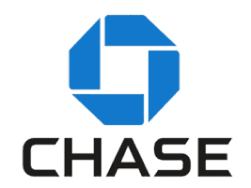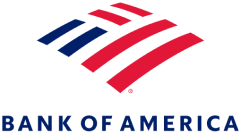We may earn an affiliate commission from partner links on the Entrepreneur Guide. These do not affect our editors’ opinions.
Once you’ve formally launched the business of your dreams, one of the logical next steps is opening a business bank account.
Business bank accounts function in the same way as personal bank accounts. Authorized users are permitted to deposit or withdraw money. Like a regular bank account, you’ll have the option to open a checking account, savings account, credit card account, and merchant services account. Your banking needs for business finances will be similar to your finances, dealing with the same financial institutions.
Who offers the best business bank accounts?
While it might seem like banks are providing a service, they’re businesses trying to make money. You should treat banks the same way as you would any other company. If you don’t like the food at one restaurant, you will take your business to another one, right? You should apply the same concept to your bank account. Avoid things you don’t like transaction limits, ATM networks with withdrawal fees, minimum balance requirements, incoming wire fees, whatever it is for you.
These are four examples of bank accounts that you should look into first:
Why should I open a business bank account?
No legal requirement says that you have to open a business bank account. Depending on the nature of your business, it might be next to impossible to open one. However, several benefits come from opening and using a business bank account:
- Tax purposes. The IRS strongly recommends that business owners use a separate bank account for running their business. It will be much easier to track revenue and business expenses with an entirely different account than your personal account. Additionally, it can make things much easier in the event of an IRS audit. You would have well-maintained books to help prove your business is legitimate and not just a hobby.
- Fraud protection. Opening a business bank account will require getting an employer identification number (EIN). It’s easiest to think of an EIN as the business version of a Social Security number (SSN). The high activity associated with business-related financial transactions puts business accounts at a higher risk for fraud. You can protect your personal information using an EIN instead of your SSN.
- Purchasing power. Businesses have credit scores just like everyone else. A higher credit score for your business will grant it access to more purchasing power. With higher purchasing power, your business loan applications are more likely to be accepted, the interest rates might be lower, and you could seek higher balances. As long as you keep your credit score high, purchasing power is a special tool for your business.
- Access to business loans. One of the critical requirements for a bank to accept a loan application is that you must have a business bank account. The future is unpredictable, and the economy tends to shift dramatically and unexpectedly. You’ll likely need the help of a business loan at one point or another. If you suddenly need to borrow money, the last thing you want to do is jump through all the hoops of opening a bank account.
- Professionalism. Everything matters in the business world, but professionalism is arguably an essential aspect. Every business move will come with a lot of risks involved. If potential partners or vendors think your business isn’t professional enough, it might scare them away. Just imagine how you would feel if you received a check from another business and it was from a personal account. Sure, you would still receive the funds, but would you take this person and business seriously? Opening a business bank account will remove the doubt surrounding your business. Business account holders automatically gain a crucial perk — a sense of professionalism.
How do I open a business bank account?
Opening a basic business checking account will require a few more steps than opening a personal one. Opening the account is similar, but you must include several more qualifying items. The EIN is just the beginning of the extra steps for opening a business bank account. You’ll also need to bring articles of incorporation, your business permits and licenses, a Doing Business As (DBA) certificate, and documents proving your identity.
The hardest part of the process will be securing all these items. Once you do, the process should be pretty smooth and relatively quick. Different banks will come with other requirements that can complicate the process. Traditional banks often require an in-person meeting with all relevant members of the business. Online-only banks don’t have this requirement but can have other qualifications based on your business type and the state where you founded your company.
Find the best bank account for your business
Generally, all banks provide the same essential functions of safely storing your money and allowing you to access it when needed. However, there are a lot of key differences between banks that can make your life as a business owner much more straightforward.
You should look for a highly reputable bank that offers business accounts with fraud protection, branches across the country, and low fees. There’s no benefit to rushing into the first bank and opening an account. Take your time, compare your options, and select the one you think is best for your business.
For more cutting-edge business content, check out our books and webinars on Entrepreneur.com.
Information provided on Entrepreneur Guide is for educational purposes only. Your financial situation is unique and the products and services we review may not be right for your circumstances. We do not offer financial advice, advisory or brokerage services, we do not recommend or advise individuals to buy or sell particular stocks or securities. Performance information may have changed since the time of publication. Past performance is not indicative of future results




